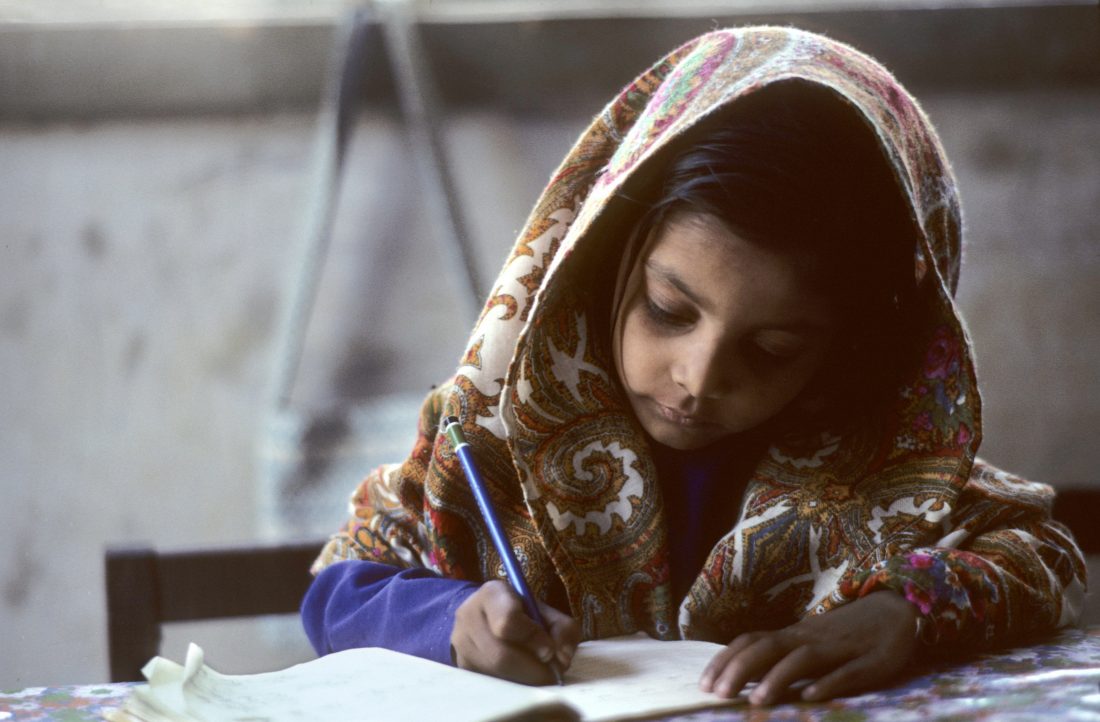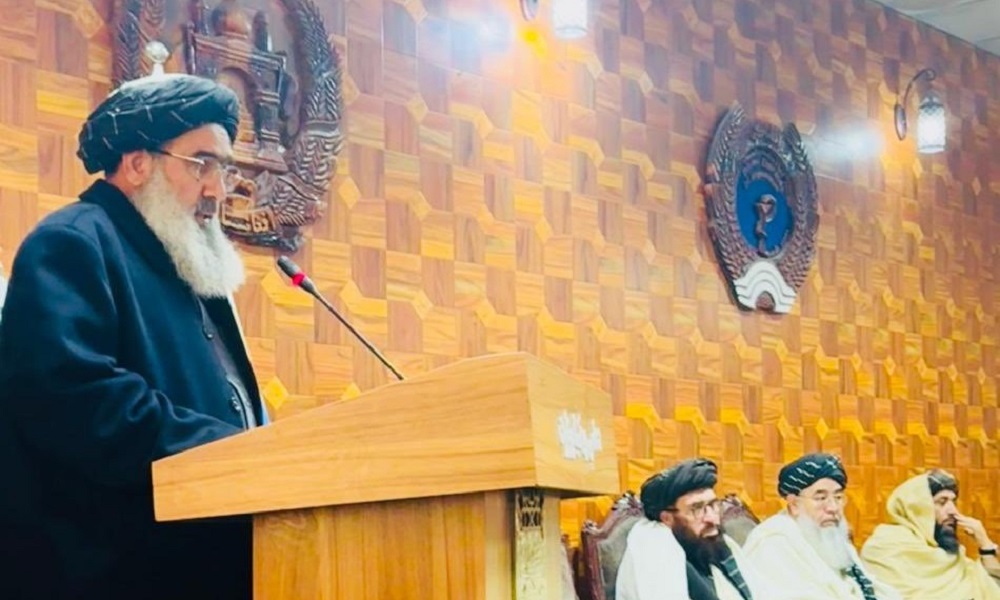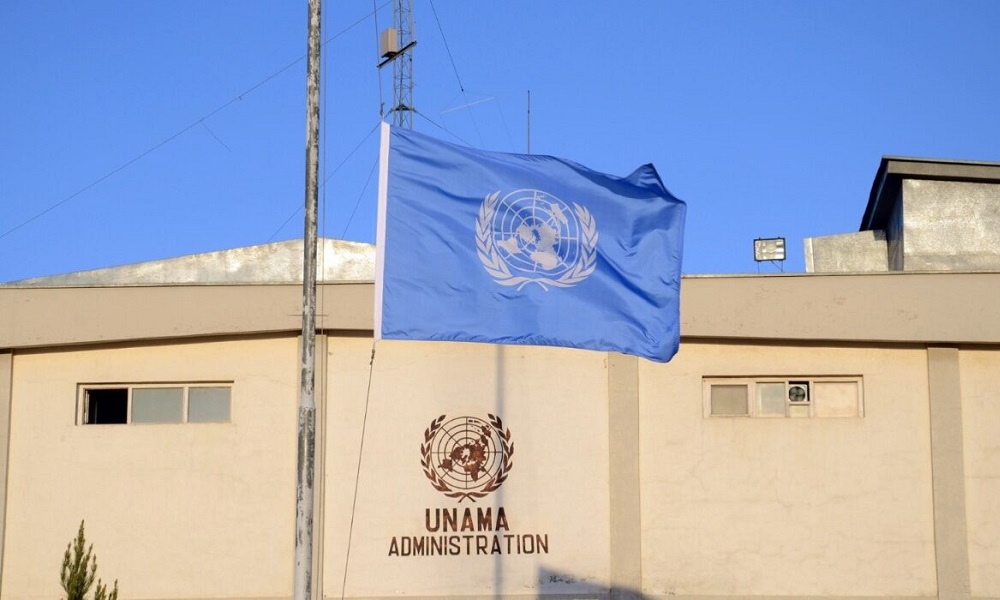Latest News
Taliban allowing girls’ schools in rural Afghanistan

Many of the Taliban fighters’ own sisters and daughters are attending schools lately – a surprising shift in policy.
Following is a developed excerpt from an analytical report published by Foreign Policy, on May 04, 2020.
People in Badikhel a remote area of Khost province and largely dominated by the Taliban has said the Taliban allowed girls to attend schools. According to the villagers, the Taliban has assured them that they have no issues with the girls’ school.
A school owner told Foreign Policy, “Some of my students are daughters, sisters, or nieces of Taliban fighters. Mostly, all of these men are not living in our village. They are busy fighting and hiding. But they encouraged their relatives to visit my school and get educated.”
“My brother is a Taliban fighter. But he does not have any problems with the school. He wants me to seek wisdom and education,” said Latifa Khostai, one of the students.
In retrospect, when the Taliban came to power in the 1990s, they imposed a very extremist patriarchal rule and banned female education all over the country. Additionally, women were not allowed to work and could not leave their homes without a close male relative.
Following the fall of the Taliban regime, a déjà vu took place when the US and its allies entered Afghanistan and proclaimed women’s rights, and especially girls’ education, as one of their prime goals.
Now that the US signed an agreement with the Taliban in February, it has become clear that, sooner or later, the group would somehow return to power in some form, at the very least in some sort of power-sharing arrangement with the Afghan government.
When it comes to female education, some observers and activists believe that the Taliban would ban any kind of education for girls and young women again.
Both the Afghan government and the American negotiators made clear that such a regression would not take place, while the Taliban leadership preferred to stay vague and underlined the importance of Islamic norms in the context of women’s work and girls’ education.
“We are not against female education or work. But we have Islamic norms. This is still not the West,” Sher Mohammad Abbas Stanikzai, the head of the Taliban office in Qatar, previously said in an interview.
The case of the girls’ school in Badikhel, however, shows that things are much more complex – only time, with its course, can resolve the equation.
Latest News
Ministries of Public Health and Higher Education sign cooperation agreement

The Ministry of Public Health announced on Tuesday it has signed a cooperation agreement with the Ministry of Higher Education aimed at expanding scientific, research, educational, and technical cooperation.
At the signing ceremony held in Kabul, Noor Jalal Jalali, Minister of Public Health, said that the agreement would lead to significant improvements in the capacity-building of students and doctors, ensure that research is conducted based on evidence, and enable the collection of accurate data.
Meanwhile, Neda Mohammad Nadeem, Minister of Higher Education, described the agreement as beneficial to the public and to both institutions, stressing the need to train individuals at universities who can contribute to social development and make the country self-sufficient in the public health sector.
Latest News
UNAMA holds new round of Working Group meetings on counter-narcotics and private sector

The United Nations Assistance Mission in Afghanistan (UNAMA) has convened a new round of Doha Process Working Group meetings focusing on counter-narcotics and private sector development.
The meetings, held in Kabul on February 3 and 9, brought together representatives of UN member states and international organizations, officials of the Islamic Emirate, and subject-matter experts.
According to UNAMA, discussions in the counter-narcotics working group centered on efforts by Islamic Emirate authorities and the international community to support alternative livelihoods for Afghans previously dependent on poppy cultivation and the illicit opium trade. Participants also reviewed drug-use prevention and treatment initiatives, as well as law-enforcement measures to curb narcotics production and trafficking.
The private sector working group focused on job creation and entrepreneurship, with particular attention to women’s participation in the private sector, market integration, access to finance, and the development of private banking and financial infrastructure.
UNAMA said both working groups identified priority areas for enhanced engagement and explored more effective and sustainable approaches to supporting Afghan men and women. Participants also examined the linkages between the two areas, noting that private sector development is a key source of livelihoods, while counter-narcotics efforts contribute to Afghanistan’s economic and social stability.
The working groups were established following the third Meeting of Special Envoys held in Doha, Qatar, in June and July 2024, in line with recommendations of the Independent Assessment endorsed by the UN Security Council. The process aims to promote more coherent, coordinated, and structured engagement with Afghanistan’s de facto authorities for the benefit of the Afghan people.
UNAMA added that stakeholders engage in the working groups on an ongoing basis, with full-format meetings convened periodically. Since their establishment, the groups have improved information-sharing, helped mobilize additional resources, and facilitated expert exchanges to strengthen support for the Afghan people.
Latest News
Economic Commission approves national policy for development of agriculture

At a regular meeting of the Economic Commission chaired by Mullah Abdul Ghani Baradar, Deputy Prime Minister for Economic Affairs, the National Policy for the Development of the Agriculture and Livestock Sector was approved.
According to a statement from the deputy PM’s office, the key objectives of the policy include the mechanization of the agriculture and livestock sector; development of agricultural, irrigation, and livestock research and extension systems; management of irrigation systems; support for investment in these sectors; and ensuring public access to high-quality agricultural and animal products.
During the same meeting, the development plan for the fish farming sector was also approved.
Under this plan, through private sector investment, 7,700 small, medium, and large fish production and farming facilities will be established on 6,500 hectares of land in various parts of the country.
The statement added that the implementation of this plan will create direct employment opportunities for 50,000 people and indirect employment for 250,000 others.
-

 Latest News3 days ago
Latest News3 days agoAfghanistan to grant one- to ten-year residency to foreign investors
-

 Sport5 days ago
Sport5 days agoIndonesia shock Japan to reach historic AFC Futsal Asian Cup final
-

 Sport3 days ago
Sport3 days agoIran clinch AFC Futsal Asian Cup 2026 in penalty shootout thriller
-

 Latest News4 days ago
Latest News4 days agoAfghanistan says Pakistan is shifting blame for its own security failures
-

 International Sports2 days ago
International Sports2 days agoWinter Olympics gain momentum as medal table takes shape
-

 Latest News3 days ago
Latest News3 days agoTraffic police receive new cars
-

 Regional4 days ago
Regional4 days agoIran’s FM calls Oman-mediated talks with US ‘good start’
-

 Latest News2 days ago
Latest News2 days agoTajik foreign minister urges international community to help Afghanistan address its challenges
























